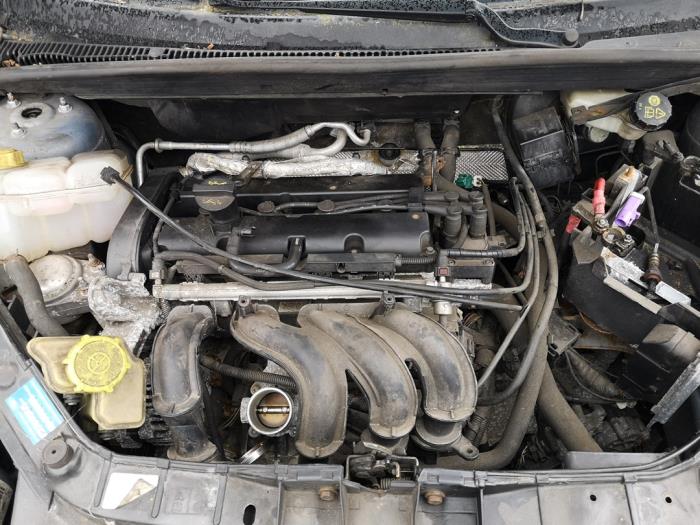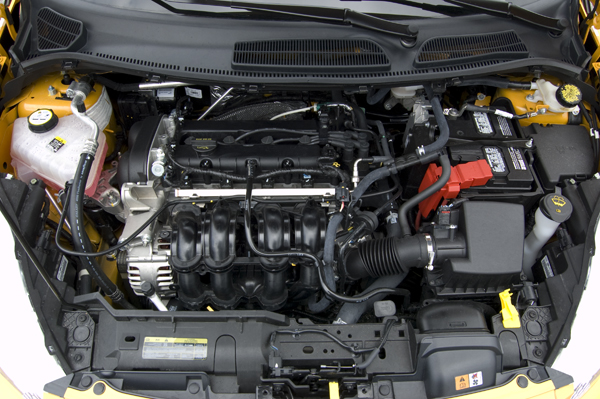Top Ford Fiesta Engine Repairs to Avoid Costly Damage
Top Ford Fiesta Engine Repairs to Avoid Costly Damage
Blog Article
The Future of Engines: Developments Driving Lasting Power Solutions
As the vehicle industry navigates the necessary transition towards sustainability, the future of engines is significantly defined by groundbreaking advancements. Electric engine improvements, together with promising advancements in hydrogen gas cells and biofuels, are reshaping the landscape of power options. The introduction of hybrid systems further complicates this development, offering both possibilities and difficulties to decrease discharges effectively. Paired with the assimilation of man-made knowledge in engine design, these technical strides raise essential questions regarding their long-lasting viability and influence on standard standards. What might this suggest for the market and customers alike?
Electric Engine Developments
The evolution of electric engine developments signifies an essential change in the aerospace and vehicle markets, driven by the immediate requirement for sustainable options to fossil fuels. This change is characterized by considerable innovations in battery technology, power electronic devices, and electrical motor layout, which jointly boost the performance and efficiency of electrical engines.
Recent developments have brought about the creation of lighter, extra energy-dense batteries, such as lithium-silicon and solid-state batteries, which assure longer ranges and shorter billing times. Additionally, improvements in electrical motor effectiveness, such as making use of long-term magnets and progressed cooling down systems, enable electrical engines to run successfully under varying problems. These enhancements not just boost automobile performance but additionally add to a reduction in total power consumption.
Furthermore, the combination of advanced software formulas has optimized power monitoring in electric lorries, enabling regenerative braking and anticipating charging strategies. As suppliers progressively welcome electric propulsion, the automotive and aerospace sectors are experiencing a standard change in the direction of greener innovations. This evolution not only fulfills regulatory demands yet also lines up with customer preferences for eco-friendly transportation services, strengthening electrical engines as a cornerstone of future lasting mobility.
Innovations in Biofuels
As the aerospace and automobile sectors increasingly prioritize sustainable power resources, developments in biofuels emerge as a complementary service to electrical engines. Biofuels, stemmed from organic products such as crops, waste, and algae, provide a cutting-edge method for reducing greenhouse gas discharges and dependence on fossil gas.
Current research has actually focused on improving the performance and sustainability of biofuel manufacturing. Second-generation biofuels make use of non-food feedstocks, decreasing competition with food supply and decreasing environmental effect. Improvements in synthetic biology have enabled the design of microbes to generate biofuels a lot more successfully, leading to greater returns and reduced manufacturing expenses.
Furthermore, the advancement of drop-in biofuels allows for seamless integration into existing framework, allowing a smoother transition for markets typically based on nonrenewable fuel sources. ford fiesta engine. These gas can be made use of in existing engines without modifications, facilitating their adoption throughout various industries
Investments in biofuel technology, along with encouraging plans, are important to drive advancement and scalability. As the worldwide area seeks to deal with climate adjustment, biofuels use a practical, prompt service that lines up with the overarching goal of sustainability in transport and air travel.
Hydrogen Fuel Cell Technology
An expanding number of firms and researchers are discovering hydrogen fuel cell innovation as a feasible alternative to standard power resources in transportation and power systems. This technology transforms chemical energy from hydrogen into electrical power through an electrochemical reaction, with water as the only byproduct, making it an ecologically pleasant choice.
The core of hydrogen gas cells is the fuel cell pile, where hydrogen particles are divided right into protons and electrons. The circulation of electrons produces power, while protons move via a this link membrane to integrate with oxygen from the air, creating water. This process leads to high efficiency and reduced exhausts, positioning hydrogen gas cells as a vital player in the change to sustainable power.
Substantial innovations have been made in enhancing the resilience and effectiveness of gas cells, along with decreasing expenses with innovative manufacturing methods. Furthermore, the advancement of hydrogen manufacturing approaches, such as electrolysis powered by renewable energy sources, improves the sustainability of the total system. As infrastructure for hydrogen refueling expands and production methods end up being extra efficient, hydrogen fuel cell innovation holds great promise for decarbonizing numerous industries, including heavy-duty transport and stationary power generation.
Crossbreed Systems and Their Impact
Hybrid systems represent a significant evolution in lasting engine innovation, merging traditional inner burning engines with electric propulsion to optimize power effectiveness and reduce emissions (ford fiesta engine). This twin technique enables view it cars to make use of both power resources, allowing greater adaptability in power intake and reducing dependence on fossil fuels

In enhancement to environmental benefits, crossbreed systems provide customers a sensible shift in the direction of completely electric cars. They relieve range anxiety by combining the comfort of gasoline with the advantages of electric propulsion, making them an eye-catching choice for a bigger target market.
The Role of AI in Engine Style
Leveraging sophisticated formulas and machine discovering techniques, the automobile sector is progressively integrating expert system (AI) right into engine design processes. AI enhances the performance and performance of layout by evaluating huge datasets to determine optimum configurations and performance specifications. This ability permits engineers to imitate numerous operating problems and predict engine behavior under numerous scenarios, substantially lowering the time and cost related to standard prototyping methods.
Additionally, AI assists in the advancement of sophisticated materials and combustion processes customized for sustainability. By maximizing gas performance and minimizing emissions, AI-driven designs align with global initiatives focused on lowering the carbon impact of vehicle engines. Maker discovering algorithms can likewise anticipate maintenance demands, causing boosted integrity and long life of i thought about this engine parts.
In Addition, AI is crucial in the assimilation of electrification innovations, such as hybrid systems, where it can optimize battery management and power recuperation processes. As the industry relocates in the direction of more lasting power options, the function of AI in engine style ends up being increasingly vital, driving innovation and improving the efficiency of future engines. Inevitably, the partnership in between AI and engine style declares a brand-new period of smarter, cleaner, and a lot more efficient auto innovations.

Verdict
In conclusion, the future of engines is being shaped by a convergence of innovative innovations that prioritize sustainability. Electric engine improvements, biofuel advancements, hydrogen fuel cells, and hybrid systems collectively contribute to a considerable reduction in emissions and ecological effect.
Electric engine developments, together with promising developments in hydrogen gas cells and biofuels, are reshaping the landscape of power solutions. Additionally, renovations in electrical motor effectiveness, such as the use of long-term magnets and advanced cooling systems, enable electrical engines to operate efficiently under differing problems. By maximizing fuel efficiency and reducing emissions, AI-driven designs align with global campaigns intended at reducing the carbon impact of automobile engines. As the market moves towards even more sustainable power remedies, the function of AI in engine layout becomes progressively vital, driving development and boosting the performance of future engines. Electric engine advancements, biofuel advancements, hydrogen gas cells, and hybrid systems collectively add to a considerable reduction in discharges and ecological effect.
Report this page